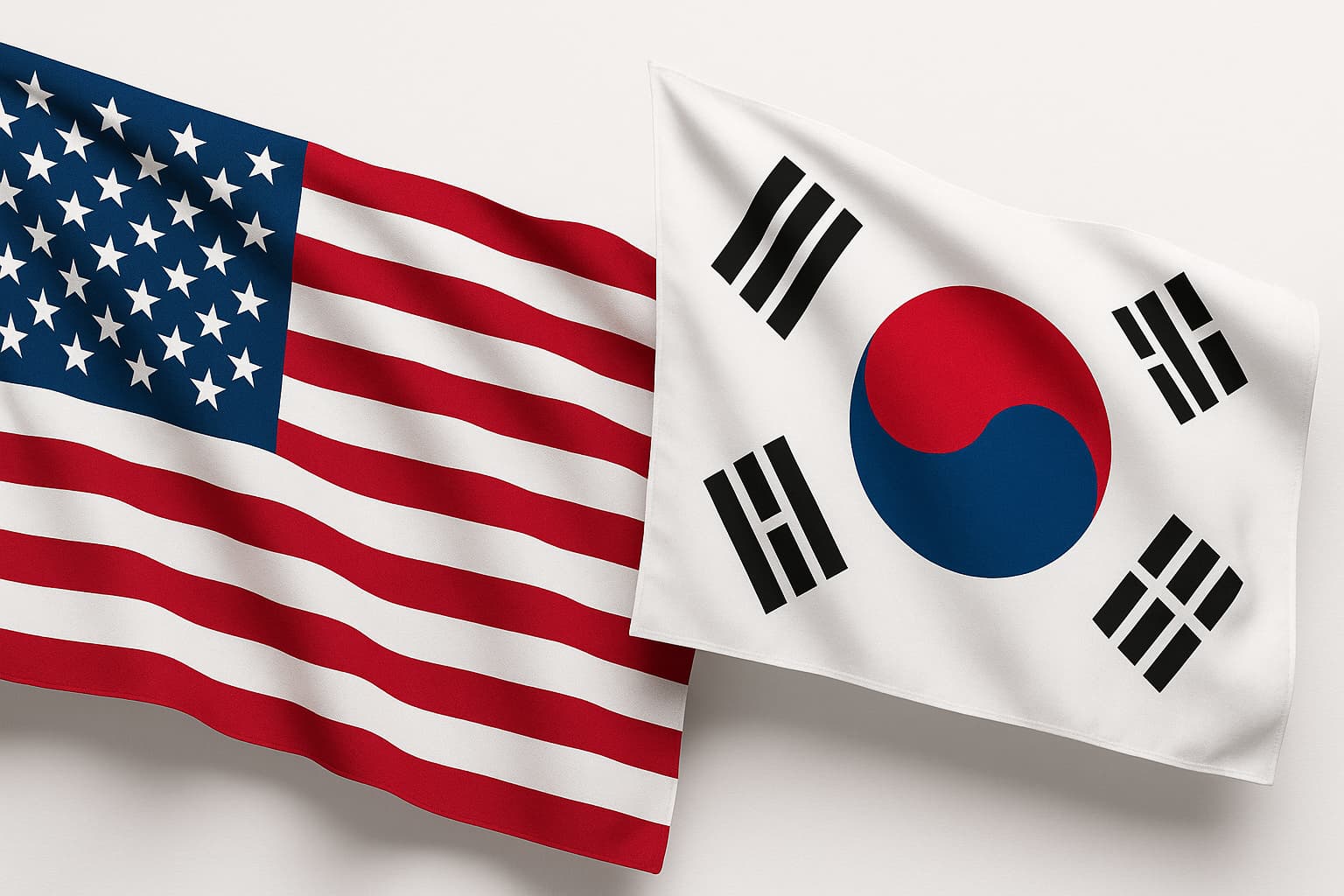
The United States and South Korea agreed on a broad science and technology memorandum to deepen alliance ties and bolster Indo-Pacific stability. The non-binding pact aims to accelerate innovation while protecting critical capabilities. Both sides cast it as groundwork for a new Golden Age of Innovation.
AI sits at the centre. Plans include pro-innovation policy alignment, trusted exports across the stack, AI-ready datasets, safety standards, and enforcement of compute protection. Joint metrology and standards work links the US Center for AI Standards and Innovation with the AI Safety Institute of South Korea.
Trusted technology leadership extends beyond AI. The memorandum outlines shared research security, capacity building for universities and industry, and joint threat analysis. Telecommunications cooperation targets interoperable 6G supply chains and coordinated standards activity with industry partners.
Quantum and basic research are priority growth areas. Participants plan interoperable quantum standards, stronger institutional partnerships, and secured supply chains. Larger projects and STEM exchanges aim to widen collaboration, supported by shared roadmaps and engagement in global consortia.
Space cooperation continues across civil and exploration programmes. Strands include Artemis contributions, a Korean cubesat rideshare on Artemis II, and Commercial Lunar Payload Services. The Korea Positioning System will be developed for maximum interoperability with GPS.
Would you like to learn more about AI, tech, and digital diplomacy? If so, ask our Diplo chatbot!

Speaking at the CNBC Technology Executive Council Summit in New York, Wikipedia founder Jimmy Wales has expressed scepticism about Elon Musk’s new AI-powered Grokipedia, suggesting that large language models cannot reliably produce accurate wiki entries.
Wales highlighted the difficulties of verifying sources and warned that AI tools can produce plausible but incorrect information, citing examples where chatbots fabricated citations and personal details.
He rejected Musk’s claims of liberal bias on Wikipedia, noting that the site prioritises reputable sources over fringe opinions. Wales emphasised that focusing on mainstream publications does not constitute political bias but preserves trust and reliability for the platform’s vast global audience.
Despite his concerns, Wales acknowledged that AI could have limited utility for Wikipedia in uncovering information within existing sources.
However, he stressed that substantial costs and potential errors prevent the site from entirely relying on generative AI, preferring careful testing before integrating new technologies.
Wales concluded that while AI may mislead the public with fake or plausible content, the Wiki community’s decades of expertise in evaluating information help safeguard accuracy. He urged continued vigilance and careful source evaluation as misinformation risks grow alongside AI capabilities.
Would you like to learn more about AI, tech and digital diplomacy? If so, ask our Diplo chatbot!

China has pledged to expand its high-tech industries over the next decade. Officials said emerging sectors such as quantum computing, hydrogen energy, nuclear fusion, and brain-computer interfaces will receive major investment and policy backing.
Development chief Zheng Shanjie told reporters that the coming decade will redefine China’s technology landscape, describing it as a ‘new scale’ of innovation. The government views breakthroughs in science and AI as key to boosting economic resilience amid a slowing property market and demographic decline.
The plan underscores Beijing’s push to rival Washington in cutting-edge technology, with billions already channelled into state-led innovation programmes. Public opinion in Beijing appears supportive, with many citizens expressing optimism that China could lead the next technological revolution.
Economists warn, however, that sustained progress will require tackling structural issues, including low domestic consumption and reduced investor confidence. Analysts said Beijing’s long-term success will depend on whether it can balance rapid growth with stable governance and transparent regulation.
Would you like to learn more about AI, tech and digital diplomacy? If so, ask our Diplo chatbot!

AI ECG analysis improved heart attack detection and reduced false alarms in a multicentre study of 1,032 suspected STEMI cases. Conducted across three primary PCI centres from January 2020 to May 2024, it points to quicker, more accurate triage, especially beyond specialist hospitals.
ST-segment elevation myocardial infarction occurs when a major coronary artery is blocked. Guideline targets call for reperfusion within 90 minutes of first medical contact. Longer delays are associated with roughly a 3-fold increase in mortality, underscoring the need for rapid, reliable activation.
The AI ECG model, trained to detect acute coronary occlusion and STEMI equivalents, analysed each patient’s initial tracing. Confirmatory angiography and biomarkers identified 601 true STEMIs and 431 false positives. AI detected 553 of 601 STEMIs, versus 427 identified by standard triage on the first ECG.
False positives fell sharply with AI. Investigators reported a 7.9 percent false-positive rate with the model, compared with 41.8 percent under standard protocols. Clinicians said earlier that more precise identification could streamline transfers from non-PCI centres and help teams reach reperfusion targets.
An editorial welcomed the gains but urged caution. The model targets acute occlusion rather than STEMI, needs prospective validation in diverse populations, and must be integrated with clear governance and human oversight.
Would you like to learn more about AI, tech, and digital diplomacy? If so, ask our Diplo chatbot!

The US tech giant, NVIDIA, has released open-source AI models and data tools across language, biology and robotics to accelerate innovation and expand access to cutting-edge research.
New model families, Nemotron, Cosmos, Isaac GR00T and Clara, are designed to empower developers to build intelligent agents and applications with enhanced reasoning and multimodal capabilities.
The company is contributing these open models and datasets to Hugging Face, further solidifying its position as a leading supporter of open research.
Nemotron models improve reasoning for digital AI agents, while Cosmos and Isaac GR00T enable physical AI and robotic systems to perform complex simulations and behaviours. Clara advances biomedical AI, allowing scientists to analyse RNA, generate 3D protein structures and enhance medical imaging.
Major industry partners, including Amazon Robotics, ServiceNow, Palantir and PayPal, are already integrating NVIDIA’s technologies to develop next-generation AI agents.
An initiative that reflects NVIDIA’s aim to create an open ecosystem that supports both enterprise and scientific innovation through accessible, transparent and responsible AI.
Would you like to learn more about AI, tech and digital diplomacy? If so, ask our Diplo chatbot!

Nokia and NVIDIA have announced a $1 billion partnership to develop an AI-powered platform that will drive the transition from 5G to 6G networks.
The collaboration will create next-generation AI-RAN systems, combining computing, sensing and connectivity to transform how the US mobile networks process data and deliver services.
However, this partnership marks a strategic step in both companies’ ambition to regain global leadership in telecommunications.
By integrating NVIDIA’s new Aerial RAN Computer and Nokia’s AI-RAN software, operators can upgrade existing networks through software updates instead of complete infrastructure replacements.
T-Mobile US will begin field tests in 2026, supported by Dell’s PowerEdge servers.
NVIDIA’s investment and collaboration with Nokia aim to strengthen the foundation for AI-native networks that can handle the rising demand from agentic, generative and physical AI applications.
These networks are expected to support future 6G use cases, including drones, autonomous vehicles and advanced augmented reality systems.
Both companies see AI-RAN as the next evolution of wireless connectivity, uniting data processing and communication at the edge for greater performance, energy efficiency and innovation.
Would you like to learn more about AI, tech and digital diplomacy? If so, ask our Diplo chatbot!

A new Focus Bari survey shows that AI is still unfamiliar territory for most Greeks.
Although more than eight in ten have heard of AI, 68 percent say they have never used it professionally. The study highlights that Greece integrates AI into its workplace more slowly than many other countries.
The survey covered 21 nations and found that 83 percent of Greeks know about AI, compared with 17 percent who do not. Only 35 percent feel well-informed, while about one in three admits to knowing little about the technology.
Similar trends appear worldwide, with Switzerland, Mexico, and Romania leading in AI awareness, while countries like Nigeria, Japan, and Australia show limited familiarity.
Globally, almost half of respondents use AI in their everyday lives, yet only one in three applies it in their work. In Greece, that gap remains wide, suggesting that AI is still seen as a distant concept rather than a professional tool.
Would you like to learn more about AI, tech and digital diplomacy? If so, ask our Diplo chatbot!

LifeClock, reported in Nature Medicine, estimates biological age from routine health records. Trained on 24.6 million visits and 184 indicators, it offers a low-cost route to precision health beyond simple chronology.
Researchers found two distinct clocks: a paediatric development clock and an adult ageing clock. Specialised models improved accuracy, reflecting scripted growth versus decline. Biomarkers diverged between stages, aligning with growth or deterioration.
LifeClock stratified risk years ahead. In children, clusters flagged malnutrition, developmental disorders, and endocrine issues, including markedly higher odds of pituitary hyperfunction and obesity. Adult clusters signalled future diabetes, stroke, renal failure, and cardiovascular disease.
Performance was strong after fine-tuning: the area under the curve hit 0.98 for current diabetes and 0.91 for future diabetes. EHRFormer outperformed RNN and gradient-boosting baselines across longitudinal records.
Authors propose LifeClock for accessible monitoring, personalised interventions, and prevention. Adding wearables and real-time biometrics could refine responsiveness, enabling earlier action on emerging risks and supporting equitable precision medicine at the population scale.
Would you like to learn more about AI, tech, and digital diplomacy? If so, ask our Diplo chatbot!

Researchers at Johns Hopkins Medicine and the Bloomberg School of Public Health report that an AI-driven diabetes prevention program achieved outcomes comparable to traditional, human-led coaching. The results come from a phase III randomised controlled trial, the first of its kind.
The trial enrolled participants with prediabetes and randomly assigned them to one of four remote human-led programs or an AI app that delivered personalised push notifications guiding diet, exercise and weight management. Over 12 months, both groups were evaluated against CDC benchmarks for risk reduction (e.g. achieving 5 % weight loss, meeting activity goals, or reducing A1C).
After one year, 31.7 % of AI-app users and 31.9 % of human-led participants met the composite benchmark. Interestingly, the AI arm saw higher initiation rates (93.4 % vs 82.7 %) and completion (63.9 % vs 50.3 %) than human programs.
The researchers note that scheduling, staffing, and access barriers can limit traditional lifestyle programs. The AI approach, which runs asynchronously and is always available, may help expand reach, especially for underserved populations or when human resources are constrained.
Future work will assess how these findings scale in broader, real-world patient groups and explore cost effectiveness, user preferences and the balance between AI and human support.
Would you like to learn more about AI, tech and digital diplomacy? If so, ask our Diplo chatbot!

OpenAI says a small share of ChatGPT users show possible signs of mental health emergencies each week, including mania, psychosis, or suicidal thoughts. The company estimates 0.07 percent and says safety prompts are triggered. Critics argue that small percentages scale at ChatGPT’s size.
A further 0.15 percent of weekly users discuss explicit indicators of potential suicidal planning or intent. Updates aim to respond more safely and empathetically, and to flag indirect self-harm signals. Sensitive chats can be routed to safer models in a new window.
More than 170 clinicians across 60 countries advise OpenAI on risk cues and responses. Guidance focuses on encouraging users to seek real-world support. Researchers warn vulnerable people may struggle to act on on-screen warnings.
External specialists see both value and limits. AI may widen access when services are stretched, yet automated advice can mislead. Risks include reinforcing delusions and misplaced trust in authoritative-sounding output.
Legal and public scrutiny is rising after high-profile cases linked to chatbot interactions. Families and campaigners want more transparent accountability and stronger guardrails. Regulators continue to debate transparency, escalation pathways, and duty of care.
Would you like to learn more about AI, tech, and digital diplomacy? If so, ask our Diplo chatbot!










